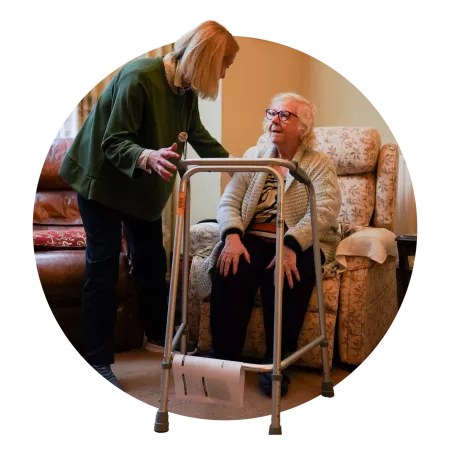Occupational therapy advice

Occupational therapists help you get the most out of life
Overcoming a challenge is easier with help from an expert, and that’s where occupational therapists come in. Occupational therapy helps you live your best life at home, at work – and everywhere else. It’s about being able to do the things you want and need to do. That could mean helping you overcome challenges learning at school, going to work, playing sport or simply doing the dishes.
If you find it challenging carrying out activities that you need, want or like to do, then you might benefit from the support of an occupational therapist. Occupational therapists will consider all your needs – physical, psychological, social and environmental. Their support can make a real difference, giving a renewed sense of purpose, opening new horizons, and changing the way you feel about the future.
You’ll find practical advice here from occupational therapists if:
- you’re recovering from illness or managing long-term health conditions and experiencing extreme fatigue
- you’re living with anxiety or depression
- you’re living with or supporting someone with dementia
- you’re a parent looking to support your child's mental health and wellbeing
- you or a family member or friend is moving to or living in a care home
- you work in a care home
- you or someone you care for has mobility difficulties when using cars
- you or your partner have a long-term illness, health condition, injury or disability that's affecting your relationship and intimacy
- you have problems sleeping.

This advice doesn't replace the one-to-one support you’d receive direct from an occupational therapist. An occupational therapist will consider your strengths, abilities and health care needs. They’ll find out what you want and need to be able to do and then consider if your environment (home, workplace, school, etc.) supports or hinders your ability to do those things.
They can then find ways to make life easier and support you to manage daily tasks and activities. This might include support with self-care, household chores, getting out and about, adaptations to your home, finding or staying in work or education, or taking part in social and leisure activities.